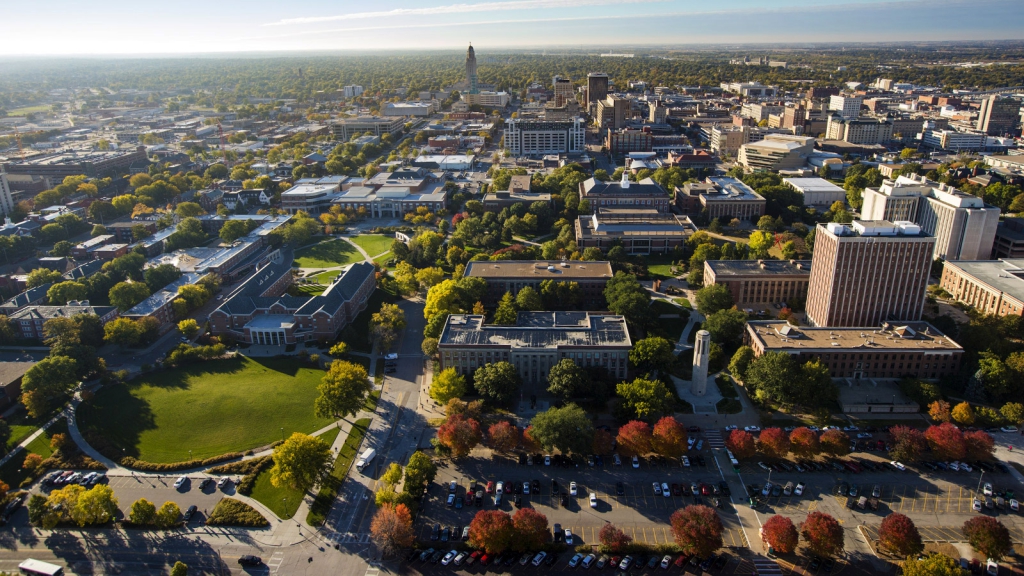Tiffany Lee, December 11, 2017 | View original publication
Lincoln to join Smart Gigabit Communities network
Lincoln, Nebraska, is the newest participant in the Smart Gigabit Communities program, a National Science Foundation-funded network led by US Ignite Inc. that supports creation of next-generation applications and services that leverage advanced networking technologies to build the foundation for smart communities.
Launched in 2015, the program creates “living lab” environments for the next generation of gigabit applications. Lincoln joins 24 national and international communities participating in the SGC network.
“Bold ideas, like Ignite-Lincoln and the Lincoln Broadband project, are fuel for innovation and progress,” Lincoln Mayor Chris Beutler said. “This public-private partnership creates the digital infrastructure that gives our entrepreneurs and students high-speed internet and supercomputer access to researchers and other innovators across the nation to build next-generation technology.”
Lincoln, recently billed by national media as “Silicon Prairie” and “a mini Palo Alto,” has an entrepreneurial spirit and strong sense of community identity and pride in its neighborhood life, making it unique among its large urban counterparts. Lincoln provides a counterpoint to the notion that only urban centers can lead innovation.
“Lincoln’s designation as a Smart Gigabit Community is another example of the power of partnerships among our university, our city and local businesses that have spurred technical innovation and economic growth,” said Ronnie Green, University of Nebraska-Lincoln chancellor. “The university is providing the technical leadership of professors Mehmet Can Vuran and Byrav Ramamurthy, and our Holland Computing Center’s high-performance computing infrastructure, to support this citywide gigabit wireless network that will accelerate the growth of Lincoln’s growing startup ecosystem.”
Smart Gigabit Communities is a collaboration among US Ignite, universities, municipalities, community anchor institutions like hospitals and schools, nonprofits, network carriers and internet service providers. These organizations are focused on developing smart gigabit applications to address local community needs, such as education, workforce development, public safety, community health, smart energy and transportation.
Each member of the program has committed to developing two gigabit applications or gigabit services per year that provide advanced technology solutions to problems faced by that community. Members agree to share those applications with other communities in the network.
Ignite-Lincoln, led by the City of Lincoln, will collaborate with the university and Allo, a local telecommunications company, to create the Lincoln Digital Town Square, a gigabit infrastructure. This will enable community partners – FUSE Coworking, NMotion Accelerator, Nebraska Center for Entrepreneurship and Nebraska Global – to connect to the next generation of applications infrastructure.
Nebraska Global will provide community applications development leadership, angel investing evaluation and business model assessments for the Ignite-Lincoln entrepreneurial teams. The potent combination of supercomputer hardware, Internet2 resources, gigabit fiber networks and advanced wireless connectivity will make Ignite-Lincoln a valuable addition to the Smart Gigabit Communities ecosystem.
In addition to the university, Allo is a key partner in the construction and deployment of Lincoln’s state-of-the-art fiber-to-the-home gigabit network. When complete in 2019, the network will encompass more than 105,000 residences and 20,000 businesses and governmental institutions. Allo is donating the operating expenses of the high-speed network and staff time to the project.
FUSE Coworking, which offers workspace to entrepreneurs in the heart of Lincoln’s downtown business district, is donating office space to Ignite-Lincoln management and operations teams. Other project partners include the Lincoln Partnership for Economic Development and NMotion, which will provide seed financial support for commercialization of new technologies, and Beehive Industries and TEDxLincoln, which will provide private enterprise guidance. The city is investing $15,000 annually over the next three years from the Broadband Enterprise Fund.
“Lincoln is an exciting addition to our network of Smart Gigabit Communities,” said William Wallace, executive director of US Ignite. “Given the spirit of innovation in Lincoln, we have no doubt that the community will bring enormous expertise and innovation to the SGC Program.”
About US Ignite Inc.
US Ignite spurs the creation of next-generation applications and services that leverage advanced networking technologies to build the foundation for smart communities. The nonprofit organization helps to accelerate new wired and wireless networking advances, from research to prototype to full-scale smart community and interconnected national deployments.
US Ignite’s Smart Gigabit Communities program accelerates the adoption of ultra-fast, programmable fiber and wireless networks as the bedrock of smart communities by identifying new economic and social opportunities created by those networks.
In collaboration with Northeastern University, US Ignite also operates the NSF-funded Platforms for Advanced Wireless Research Project Office, coordinating a $100 million public-private partnership of federal agencies and over 30 leading companies and technology associations supporting the deployment of wireless research platforms in multiple communities across the United States.
Together, these collaborative efforts among research universities, local communities and industry will yield breakthroughs in new wired and wireless networking technology. The applications and services that result from this work will help enrich residents’ lives while generating improved and potentially transformative community services, investment in high-growth startups and high-skilled jobs.
More information about Lincoln’s participation in the Smart Gigabit Community is available at Mayor Beutler’s website.
This story is based on information from US Ignite.






